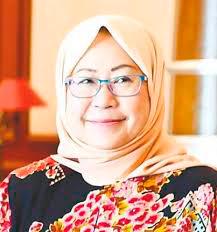KUALA LUMPUR: All countries in the Asean region are urged to invest in the establishment of the Asean Centre for Public Health Emergencies and Emerging Diseases (ACPHEED) to fortify regional preparedness and response capacity.
The Malaysian Prime Minister’s Special Advisor on Public Health, Tan Sri Dr Jemilah Mahmood (pix), said it is time for Asean to support Japan in the set-up of the centre to benefit the people and economies of the 10 member countries.
“Our region should have its own so-called centre for disease control and prevention ... thus, this is the opportunity since Japan has funded the establishment of this kind of centre.
“But this requires all governments in the region to then invest in the centre, because we will then not be facing issues, including like how do we manufacture vaccines, why aren’t we the one innovating to find the science and technology behind vaccine production, producing kits, detection of cases, and so on,“ she said.
Dr Jemilah said this in a webinar entitled Responding and Preparing for Natural Hazards under the Covid-19 Pandemic: Sharing Challenges and Lessons from Malaysia and Japan, organised by Universiti Teknologi Malaysia’s Malaysia Japan International Institute of Technology (MJIIT) here, yesterday.
She said the establishment of such a centre is extremely important as Asean is one of the most impacted regions, continued to be confronted by threats of new and re-emerging infectious diseases, as well as disasters.
“Asia Pacific is the most disaster-affected region in the world; similarly Asia has also been one of the areas that are badly hit by the pandemic as well, in the past and currently,“ she said.
Meanwhile, she applauded Japan as a respected country in managing disaster preparedness and disaster risk reduction, in terms of policy level and investment in the matter.
“Many people think or have a perception that Japan is so successful in disaster preparedness and management because they have lots of money ... yes, they do, but it’s actually beyond that.
“See the attitude of its people where their education system built in knowledge, preparedness and understanding ... also about behaviours, hygiene, and even wearing masks have been a frequent practice even before the pandemic, especially in public transport or public spaces,“ she said.
Dr Jemilah said the pandemic had been a ‘reality check’ for Malaysians to really step up in all the areas, especially in terms of cleanliness and hygiene.
She said as a result, a very drastic fall in the incidents of flu or other communicable diseases had been seen in the country because Malaysians have taken a very good public health measure and adhered to the standard operating procedure (SOP) during the pandemic. -Bernama













